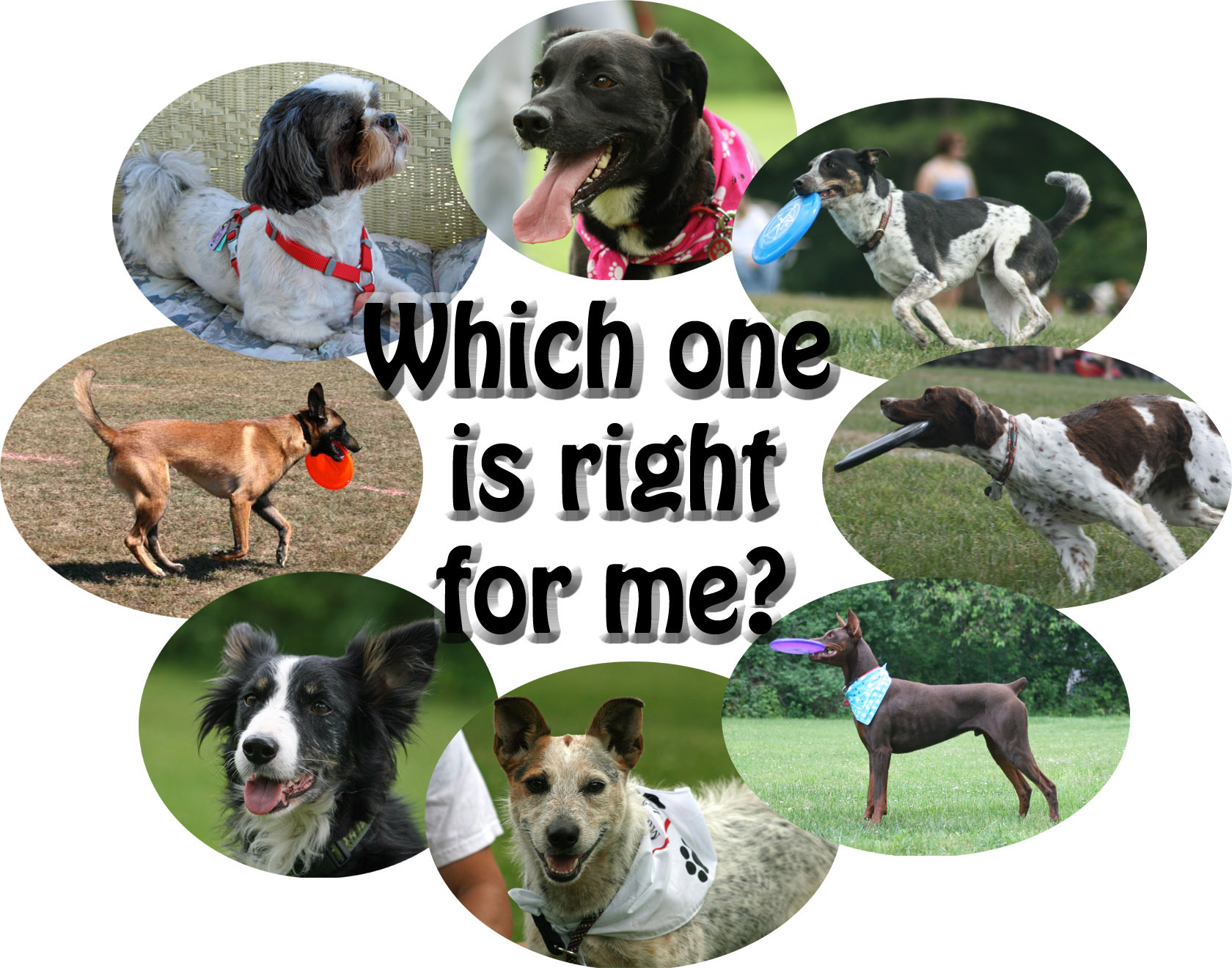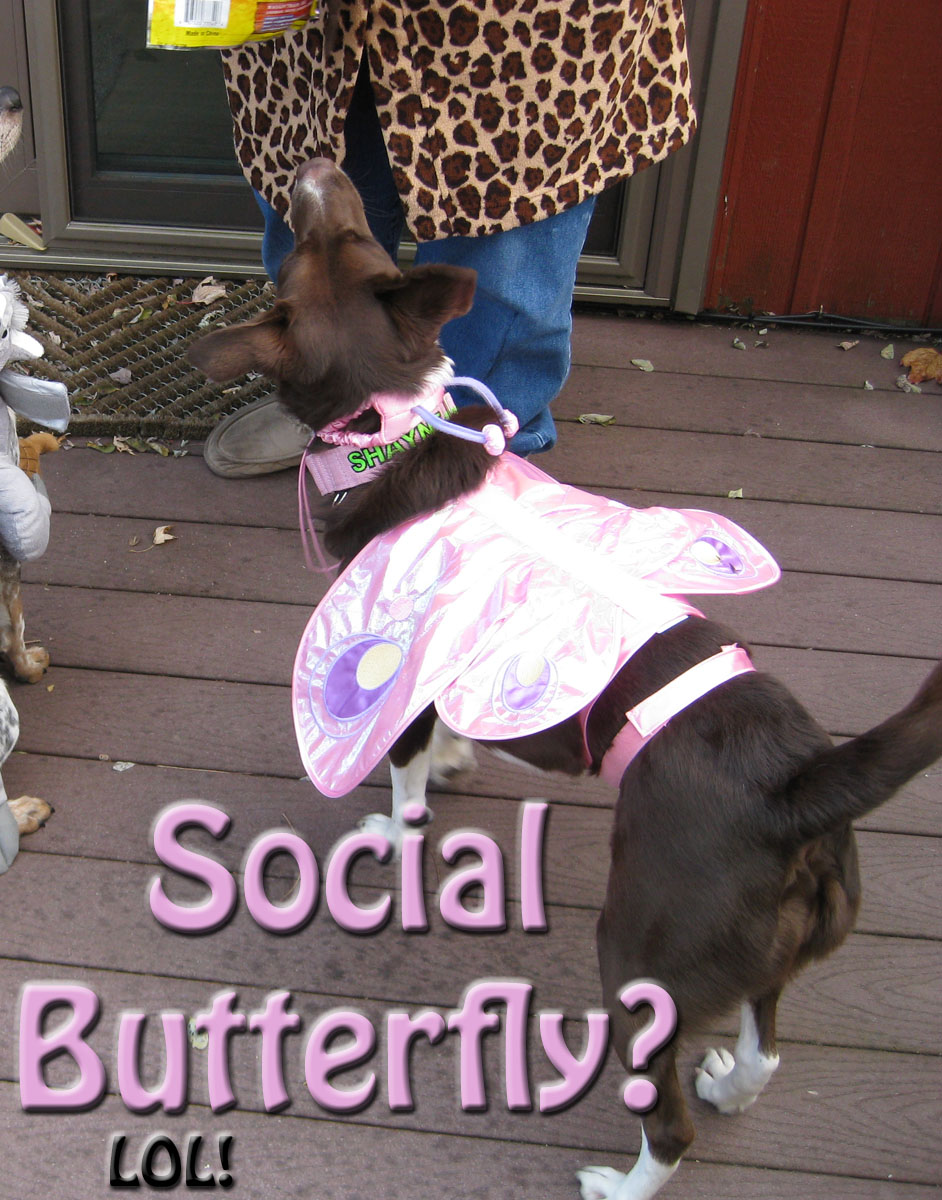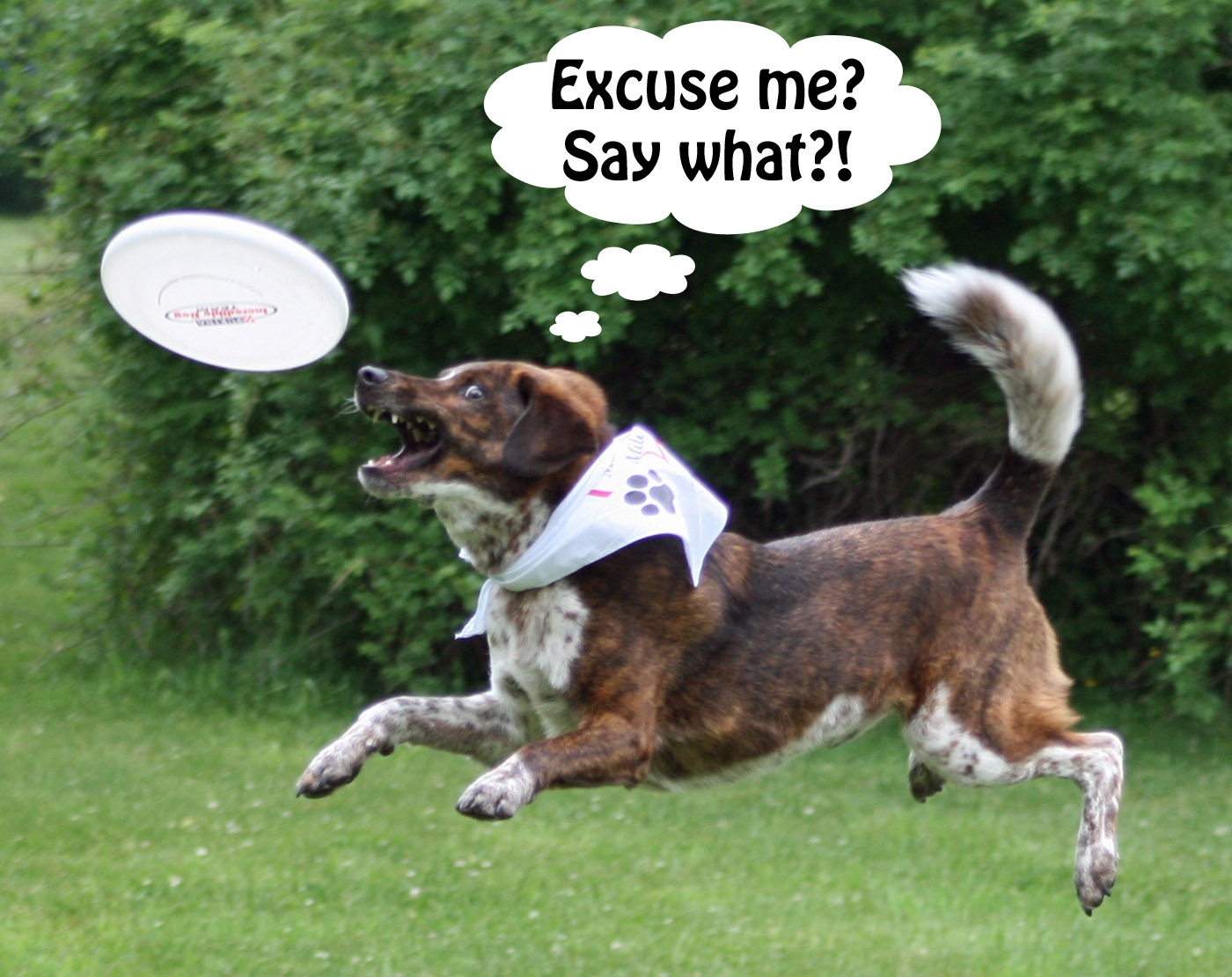 This happened a few years ago… and I can laugh at it now, but I was really embarrassed at the time because I know I offended this man…it honestly wasn’t intentional. *Now this was not a person in a class or a client… just a man who struck up a conversation with me at a dog-themed event where I was manning a booth.
This happened a few years ago… and I can laugh at it now, but I was really embarrassed at the time because I know I offended this man…it honestly wasn’t intentional. *Now this was not a person in a class or a client… just a man who struck up a conversation with me at a dog-themed event where I was manning a booth.
Man: “I got this Black Lab as a puppy, I’ve always treated him well. He sleeps in the house and gets table scraps. He’s mostly learned his basics but I’m frustrated with him–at first I figured it was a puppy thing but now that he’s over a year, I just dont know. I can’t get him to stop being friendly. I don’t want him to attack people left and right but I’d like him to protect me and not want to be friends with everyone.”
Me: “Haha, that’s a Lab for ya!”
Man: *blink *blink
Me: “You were kidding right?”
Man: *blink… “no, uhh… excuse me”
Me: *insert foot into mouth
Alright, so I felt so incredibly bad but I honestly thought he was kidding around–I really thought it was common knowledge that labs were super friendly. But this brings up the last topic for my choosing a dog week… choosing a compatible temperament for your lifestyle. From the sounds of it, this man really did want a dog who was a little more aloof. If he had done any research on Labs he would have found out that they are typically some of the most friendly, people oriented, social butterflies of the canine kingdom.
So, before getting your dog, think for a moment about what type of temperament you’d like your dog to have. How social would you like your dog to be… do you want a dog who is really sensitive to you or one who is more thick-skinned…do you want your pup to be more independent or one who is very focused on you?
 Do you want your dog to be a social butterfly who loves to say high to everything that breaths? Would you like a dog who can be surrounded by people and be relaxed and greet people when told it’s okay but who is not desperate to say hi. Or would you really prefer a dog who was standoffish with strangers. Sometimes you need to consider your living situation when considering the type of temperament you’d like. When I was living in a suburb of NYC (in a pretty densely populated area), there was this young Great Pyrenees. She was really well socialized (if the owners were honest in her socialization) and she was just not terribly comfortable with the crowds or seeing people in her apartment building. One on one, outside of her apartment building, she was very tolerant of greeting and was a total sweetheart–though it was clear to me the owner wished she were a little more friendly. She wasn’t the right dog for that area and probably wasn’t the perfect match for this owner.
Do you want your dog to be a social butterfly who loves to say high to everything that breaths? Would you like a dog who can be surrounded by people and be relaxed and greet people when told it’s okay but who is not desperate to say hi. Or would you really prefer a dog who was standoffish with strangers. Sometimes you need to consider your living situation when considering the type of temperament you’d like. When I was living in a suburb of NYC (in a pretty densely populated area), there was this young Great Pyrenees. She was really well socialized (if the owners were honest in her socialization) and she was just not terribly comfortable with the crowds or seeing people in her apartment building. One on one, outside of her apartment building, she was very tolerant of greeting and was a total sweetheart–though it was clear to me the owner wished she were a little more friendly. She wasn’t the right dog for that area and probably wasn’t the perfect match for this owner.
Another aspect to consider is whether you’d like a very independent thinking dog or one who is very handler focused. Do you want a dog who is continually looking to you for information, for cues, for direction…. or do you want a dog who is more independent and makes their own choices and decisions (this isn’t to say disobedient). The level of independence, I think, has a lot to do with what dogs were bred to do… Border Collies were bred to work very closely with humans, to take direction from them and to look to them for information…Beagles, on the other hand, were bred to be in front of the handlers, making their own choices and decisions (and trusting the human to follow).
Although not as strongly rooted to breed as independence, sensitivity of a dog/breed is certainly something to consider (though it is largely an individual feature, I do think there are some breeds that are generally more sensitive than others). Rio is super duper sensitive and is easily offended. Although he is a very confident young dog, he gets very concerned about raised voices and can shut down if he senses I’m frustrated or upset. The bonus to this is that he’s always really in tune with me and is sensitive to my presence, movements, feelings (and always overly cuddly when I’m not feeling to hot)–he has been an absolute breeze to train and work with because of how in tune we are with each other. The down side being if I’m having a bad day sometimes it’s very hard to work with him because he just wants to cuddle (and offers tons of appeasement behaviors). Shayne, on the other hand, for all of her insecurities, has a nice middle-ground. She’s sensitive enough to be in tune with me but is not rattled if I’m stressed or frustrated. Although this is a very individualistic characteristic, I do think there are some very broad breed stereotypes that you can keep in the back of your mind (again some of this having to do with the original purpose of the dog).
 So… 5 days, 5 posts, 4 big areas to think about when getting a new dog, and 4000+ words later, what does it all come down to? I think people and dogs alike could benefit if potential dog owners simply took some time to 1. think about what they want in a dog 2. research potential breeds (or get to know the individual dogs) 3. COMPARE the answers from 1 and 2. Does the breed/dog mostly meet your needs/expectations in number 1? If not … wait until you can find a more suitable match that will keep human and dog happier. All I hope to accomplish is to get people to hit the pause button and think about their wants and research the dog breeds before they go out and buy the dog that looks the coolest.
So… 5 days, 5 posts, 4 big areas to think about when getting a new dog, and 4000+ words later, what does it all come down to? I think people and dogs alike could benefit if potential dog owners simply took some time to 1. think about what they want in a dog 2. research potential breeds (or get to know the individual dogs) 3. COMPARE the answers from 1 and 2. Does the breed/dog mostly meet your needs/expectations in number 1? If not … wait until you can find a more suitable match that will keep human and dog happier. All I hope to accomplish is to get people to hit the pause button and think about their wants and research the dog breeds before they go out and buy the dog that looks the coolest.
 ALLLLL of this being said… it’s not always about finding perfect matches. If you end up with a dog who is not necessarily the perfect match, I think it can be one of the best learning experiences. We just have to keep in mind that we can’t force a dog to completely adapt to our lives… we need to learn to adapt to the dog. So, you end up with a high energy dog that you weren’t expecting… is it a perfect match if you are a couch potato? No. BUT if you make the effort to wake up early, add in extra walks and change your lifestyle to adapt to the dog to keep him happy and fulfilled–good job! You are clearly working hard to make the mismatch fit well enough to make the dog happy and that’s all anyone can ask for 🙂
ALLLLL of this being said… it’s not always about finding perfect matches. If you end up with a dog who is not necessarily the perfect match, I think it can be one of the best learning experiences. We just have to keep in mind that we can’t force a dog to completely adapt to our lives… we need to learn to adapt to the dog. So, you end up with a high energy dog that you weren’t expecting… is it a perfect match if you are a couch potato? No. BUT if you make the effort to wake up early, add in extra walks and change your lifestyle to adapt to the dog to keep him happy and fulfilled–good job! You are clearly working hard to make the mismatch fit well enough to make the dog happy and that’s all anyone can ask for 🙂
We won’t always be matched with the perfect dog, sometimes we get the dog we need…but if we can be flexible and make changes with the dog’s best interest in mind… we can end up with the most amazing relationship with our dog. Sometimes, the perfect match is overrated.

SO true. Having recently gone over what I’d like in a dog, I was feeling like there was more I didn’t like about Risa than stuff I did like. While that IS true, it doesn’t mean she’s not a great dog and that she and I aren’t meant for each other. She’s made me step up and work hard. Maybe I can’t put down into words why we click and maybe she’s not exactly what I wanted. But it still works.
Not to say that all mismatches like that will work out. It is definitely best to go into things with a game plan. Knowing what you’re looking for is key!
Can you think of a breed that is both sporty and low-maintenance? My fiancé and I have very conflicting views of what makes an idea dog. He needs dogs to be low maintenance. I thrive when a dog is in tune with me and listens well to what I ask, and would like to pursue agility, rally and other sports. I have a feeling that we’ll never perfectly reconcile our needs, but maybe there’s a breed I’ve been overlooking!
It sort of depends. If you are looking to compete at a high level in agility you are more limited in breed choices. If, however, you are interested in just casually competing locally and having a good time with your dog… there’s many many breeds who could fit both sporty and low maintenance. Though most REQUIRE the sporty training/exercise in order to then be chill.
The list of possible breeds is too long to write them all out… I woudln’t shy away from a shelter dog either … go check out local shelters see if any dogs seem to meet your criteria (many shelters have info sheets on kennels)… see what the volunteers have to say about the energy levels etc.
Wow – great posts. I just found your blog through Pets Blogroll, and I just finished reading your entire series about choosing the proper dog. Very informative and well thought out. I’m glad I stumbled upon this, and will be adding you to my own page’s blogroll!
Yes, terrific series. I’ll be directing clients to read them often, I’m certain. Excellent job!